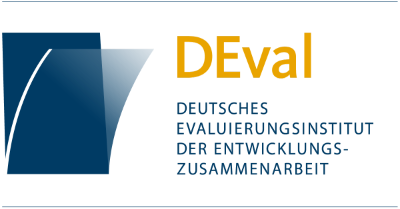Evaluating Development Cooperation on Climate Change Adaptation – Perspectives from South and North
Evaluating Development Cooperation on Climate Change Adaptation – Perspectives from South and North at EES Conference 2021
At this year’s EES Conference, a panel hosted by the evaluation capacity development project Focelac+ addressed the question “How can evaluation provide credible and insightful answers to global issues?”.
The Ministry of National Planning of Costa Rica (Mideplan) and DEval put forward conceptual and methodological challenges and insights from evaluations of development cooperation on climate change adaptation from South and North.,while Focelac+ presented lessons learned on supporting country-led evaluations of the development cooperation from the South.
The panelists offered three presentations with some highlights to remember:
- Evaluating German development cooperation on climate change adaptation. Conceptual and methodological challenges and insights (North perspective): Large-scale evaluations of adaptation-related activities of donor countries may increase the transparency, legitimacy, and climate resilience of development cooperation. These interventions in the global North tend to be complex, intertwined with further development challenges, and often cover a broad range of different sectors, scales, and stakeholders.
- Evaluating international cooperation flows towards climate change in Costa Rica, 2010-2018 (South perspective): Mideplan has identified 156 non-reimbursable international cooperation projects implemented on climate change issues for the period 2010 to 2018, representing approximately US$461 million including both donor and country contributions. It has become very significant for the country to have a better understanding of the allocations, as well as the governance of the international cooperation and its results, with special attention on the importance of the 2030 Agenda. Evaluations of the cooperation on climate change issues can provide a wide range of institutions, including donors, with evidence for adjusting existing mechanisms for international cooperation, and help set priorities for future negotiations, as well as guidance to more specific future evaluations.
- Conceptual considerations on the role of Evaluation Capacity Development and learning in evaluations on climate change-related aid flows: The global requirement on reporting advances in meeting the Sustainable Development Goals (SDGs) has led to the need of having functional M&E systems in place as a base for tracking progress and evaluating the implementation of the country´s SDGs. To be effective, evaluation requires certain contextual, political, and technical conditions; quality evaluations rely on the evaluation capabilities of the systems that embed them.
- The Focelac+ (Capacity Building and Articulation of Evaluation Actors in Latin America in the Framework of the 2030 Agenda) project aims to build different actors’ capacity and networking so that they are prepared to fulfill their evaluation roles within the framework of the 2030 Agenda.
The panel was chaired by the Deputy Director of DEval, Dr. Sven Harten, who is an evaluation expert with more than 20 years’ experience in designing and implementing evaluations in the field of development cooperation. The speakers were Carolina Zúñiga from Mideplan, who works at the Evaluation Unit and was part of the team for the Evaluation of Non-Reimbursable International Cooperation on Biodiversity and Climate Change in Costa Rica; Kevin Moull, from DEval’s Competence Centre for Evaluation Methodology (KZM), who is part of the evaluation team of the evaluation of climate change adaptation interventions; and Dirk Hoffmann, who is part of Deval’s ECD team and focuses on implementing the Focelac+ project, aiming at strengthening evaluation capacities in Latin America.
Videos of the conference sessions are now available. Conference attendees can access the recordings by logging onto the conference platform Whova.
For those who didn’t get the chance to join the conference, there is still an option to access the recordings by registering here.

